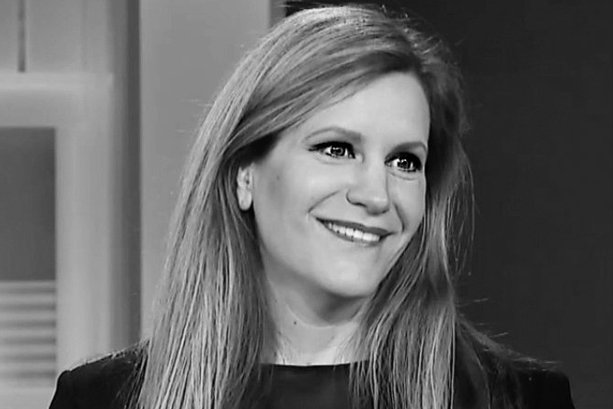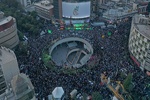The banking issues for refugees and migrants have always been a big concern because with no official ID, they are excluded from society and from access to banks. Various solutions offered so far by several banking and financial institutions have suffered from certain shortcomings like stringent identity and anti money laundering regulations in place and the vouchers given to refugees to exchange with merchants for supplies are expensive and open to abuse not to mention that they are only usable by those refugees who stay in camps.
The Digital Finance Institute, a Canadian not-for-profit, has entered into the first arrangement with an Iranian firm and as the first part of the arrangement is joining forces with SanaPay (Sana Pardakht) to solve financial inclusion for the refugee crisis.
In an interview with Mehr News, Christine Duhaime, a counter-terrorist financing and financial regulatory lawyer and the founder of the Digital Finance Institute, answers the questions on the issue:
Where did the impetus come from to initiate the Refugee Bank?
The idea for a refugee bank (and a project to improve financial services for refugees) came from me! I'm a financial regulatory lawyer in Canada with a specialty in counter-terrorist financing, sanctions and anti-money laundering law. As a counter-terrorist financing lawyer, I was witnessing the increase in terrorist financing that was fueling the rise of terrorist groups and resulting in an increase in terrorism in Syria and Iraq. The escalation of terrorism in Syria and Iraq from ISIL caused millions of people to flee to safer countries. Yet, they faced a problem in that they left with nothing and without access to their bank accounts and financing or ability to make payments.
On the other hand, non-governmental aid organizations that provide humanitarian aid to refugees and internally displaced persons were having more and more problems getting money to people in need of aid. One of the reasons they were having increased problems was because of sanctions in place, even though sanctions do not generally apply to humanitarian aid. So it was the convergence of those problems -- terrorism, increase in refugees who are financially excluded without valid ID, and problems with NGOs getting money to them safely that made me realize that something needed to be done on the banking side, by banking executives and experts, to provide financial services to improve refugee payments.
At first we were focused on just improving refugee payments, except that it requires as much investment and infrastructure as setting up a bank so we graduated to the idea of a Refugee Bank. No one has ever thought of a Refugee Bank before so we are the first ones in the world to focus just on refugee financing but when you think of it, some of our most clever people in the world come from refugee or migration situations such as Steve Jobs, the founder of Apple who was the son of a migrant from Syria. Iran has its own famous refugee from Afghanistan, Fereshteh Forough, who lives in New York City now but who set up an innovation lab in Afghanistan to teach girls how to do Internet coding.
Many children of refugees are sent to work because the families do not have enough money to pay for rent and food and water, and school expenses. If we can improve the efficiency of the payments from NGOs and the UN, then more money goes to refugees in need, we can save lives and ensure more children are educated. Just by improving financing, we save lives. It's pretty powerful. And providing more funding for refugees helps with international security in the whole region.
When we started a year ago, at first, people thought the idea of a refugee bank and refugee pay was inconceivable but there are 60 million refugees in the world - they all need financial services. No one will bank them but if we do, we become the biggest bank in the world with 60 million clients. Economically, it makes sense.
What then brought your institute and the Iranian institute together?
I was introduced to Iran because the Institute is the only think tank in the world that deals with financial technology (FinTech), both regulation, law and the social aspects which is financial inclusion. We are different that most think tanks because our mandate requires that we have a charitable aspect to our activities and we have a strong social ethic. Our partner in Iran was looking for a way to help Iran lead in FinTech and asked us to assist. Iran has the capacity to be a global leader in FinTech overnight. That's because it has a large population of young people who are highly educated and motivated, compared to other regions. And not only that, Iranians are very strong in technology and science, the two areas where FinTech specialties are key.
Another reason Iran can lead in FinTech is because as its banks modernize to join the global financial system, it does not have to adopt expensive, out-dated banking legacy systems that Western and European consultants and companies will try to sell to Iranian banks - instead it can invest in modern FinTech that does the same thing and save billions of dollars using Iranian technology and brains with Canadian FinTech expertise on digital banking, for example. So we see Iran in banking and FinTech as huge potential leaders.
I also wanted to help re-build relations between Canada and Iran and being the first Canadian organization in Iran was an important milestone for us. It's hard for Canadians to visit Iran because of the visa restrictions but normal Canadians want to be able to visit Iran and to re-build relationships.
Who are the target refugees in your project? Will the bank provide services only to refugees in Iran and Canada?
The target refugees are those who are centered in the Middle East and who migrated to Europe. It will provide payment and banking services to refugees all over the Middle East and the EU and will allow non-refugees around the world to send money and payments to their family members who may be refugees. So it will work both ways in terms of financial flows.
Iran has 1 million refugees. Canada has almost none. Compared to Iran, Canada is not very hospitable with respect to refugees but I am hopeful that things will change and with the Refugee Bank, we can help Canadians make a difference with refugees in a unique way.
Will the bank offer services to those refugees who reside out of refugee camps as well?
Yes, the idea is that it will be a digital (online) bank with payments services that will provide services to refugees and to non-refugees who want to send money to refugees. One of the reasons we like the idea of setting up in Iran is that we can help launch Iran's first digital bank in a location where there are real refugees living who can benefit from it. Iran is not only a safe and stable banking jurisdiction in which to operate but it has the rule of law which is important for finance. We felt that it was important to be in close proximity to the conflict zones to help refugees the most but were looking for a stable economy to operate in.
Are there any other previous experiences of such initiative particularly in European countries who are now facing the challenge of migrants?
No, we are the first organization to even look at financial inclusion and refugees and are the only ones who have ever contemplated or put into operation a refugee payments or refugee bank concept.
Don’t you believe that providing banking services and other facilities would encourage more people to embark on illegal immigration?
We do not support any illegal activity, including immigration that is based on false pretenses or with falsified identity. One of the projects with the bank that we are instituting is to create ID using finger vein technology as we on-board clients so that we have biometric ID on file for all refugee clients, as much as is practical. Eventually, that will help with ID issues that are key in the migration issues facing the EU at the moment. As an anti-money laundering specialist, obviously, I will use my anti-money laundering expertise to ensure we comply with international law on client ID and Know Your Client rules as we take on clients as well.
What do you think are the prospects of Refugee Bank in 10 years?
Our vision is that it be a permanent bank that meets the goals of its clients. There will always be refugees in the world and they will always need financial services. The area of refugee services is growing by leaps and bounds and no one in the private sector is in charge of making sure those services are rendered efficiently and effectively. We had a FinTech conference on Kish Island and one of the thoughts we all had driving around the beauty of Kish was how much Kish Island and Tehran would be perfect as refugee finance hubs where all of the refugee finance could be centralized in Iran for every NGO. For example, the UN and every NGO issues different ATM cards for hundreds of different programs – it’s inefficient because they use many companies all over the world from Africa to Greece and re-invent the wheel each time there is a conflict or crisis situation. A company we're associated with is putting into place a card distribution system in Iran for payments - and the idea is that we would connect that to refugee pay and see if we can help Iran become a refugee finance hub with Canada by having operations in both countries to take advantage of the talent and know-how of technology experts in Tehran and Vancouver, which has a large population of Iranians.
When are you expecting the project to be implemented?
2016 and its implementation is dependent upon securing more funding to launch the refugee payments side. We would welcome Iranian companies or banks that want to support our refugee bank.
After the presentation of the idea to at SWIFT’s Sibos 2015 Conference, how was it received by global bankers attending the Conference?
It was very well received and was, from my understanding, one of the best attended sessions of the Conference. Part of the benefit of our refugee bank project for Iran is that, indirectly, it is giving people and bankers comfort about doing business in Iran, especially that we have been to Iran a few times now for FinTech gives them reassurance when we talk about the project because we've been to Iran, talked to Iranians and were able to come back with such positive feedback. Most people do not know that Iran, for example, has 1 million refugees. In fact, it has the 5th largest population of refugees in the world and unlike other countries in the Middle East, Iranians support and educate refugees without the help of hundreds of aid organizations and the help of other countries. You are a country that truly supports refugees in a socially responsible way that most people in the West aren't aware of but are impressed to learn. Having a payments project that involves Iran lets us show the little bit of Iran that we know to the West from our visits to Iran.
Christine Duhaime, is the Executive Director of the Digital Finance Institute and its co-founder. She is responsible for setting policy direction, fundraising and building partnerships with the private and public sector for digital finance goals and initiatives. She drives the regulatory reform, financial inclusion and women in FinTech policy initiatives for the Institute.
Interview by Mohammad Hossein Azari


























Your Comment